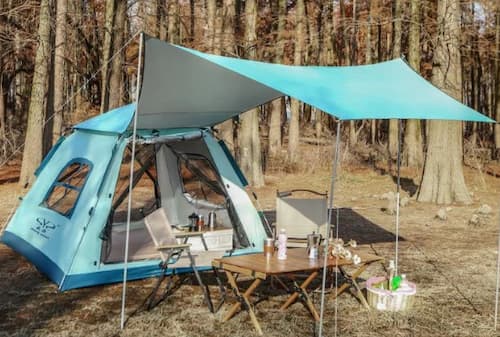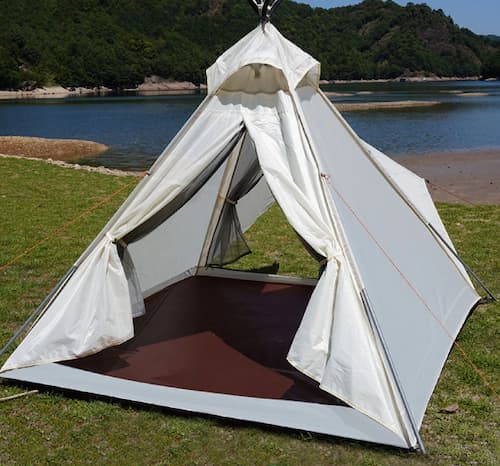For outdoor enthusiasts, having the appropriate gear is crucial, and a superior quality tent should be at the top of your list. Whether you're setting off on a brief camping excursion or an extended multi-day hiking expedition, your tent is your home away from home. It offers you protection from the elements, a safe shelter, and a comfortable space to relax and recharge.
In this comprehensive guide, we'll delve into the critical factors to bear in mind when selecting the perfect tent for your outdoor adventures. With this knowledge, you can make an informed decision and enjoy a comfortable and unforgettable experience.

Understanding Your Needs and Tent Types
Before diving into the world of tents, it's crucial to understand your specific needs and the different types of tents available. Consider the following factors:
1. Trip Duration and Activities:
The length and type of your outdoor adventure play a significant role in determining the right tent. Are you planning a weekend camping trip or a more extended expedition? Will you be hiking, backpacking, or car camping? Understanding the demands of your trip will help you narrow down the suitable tent options.
2. Tent Capacity:
Consider the number of people who will be sharing the tent. Tents come in various sizes, from solo to large family-sized options. Keep in mind that a tent's listed capacity usually assumes minimal gear storage space, so it's often a good idea to choose a tent with a slightly larger capacity than the number of people sleeping in it.
3. Seasonality and Weather Conditions:
Tents are designed for different seasons and weather conditions. Three-season tents are the most versatile and suitable for spring, summer, and fall. If you plan to camp in winter or face harsher weather conditions, a four-season tent provides greater insulation, stability, and durability.
Key Features to Consider
Now that you understand your needs, it's time to dive into the key features to consider when choosing a tent:
1. Tent Design and Structure
Tents come in various designs, including dome, tunnel, and cabin styles. Dome tents are popular for their easy setup, stability, and versatility. Tunnel tents offer spacious interiors and are well-suited for larger groups. Cabin tents provide ample headroom and a homey feel but are less wind-resistant. Consider the tent's shape, height, and interior space based on your preferences and camping requirements.
2. Weight and Packability
If you plan to backpack or hike long distances, the weight and packability of your tent are crucial. Look for lightweight materials, compact sizes, and easy-to-assemble structures. Ultralight tents are ideal for backpacking, while car campers can prioritize more spacious and comfortable options.
3. Tent Materials
Tent materials impact durability, weather resistance, and breathability. The tent's rainfly should be made from waterproof and durable materials, such as ripstop nylon. The tent body should offer ample ventilation to prevent condensation buildup. The tent floor should be sturdy and waterproof, keeping you dry even on damp ground.

4. Weather Resistance
Ensure your tent is designed to handle the weather conditions you may encounter. Look for features such as a rainfly, reinforced seams, and a bathtub-style floor that keeps water from seeping in. Good ventilation and sturdy construction are essential for withstanding strong winds.
5. Setup and Ease of Use
Consider the tent's setup process and whether it requires one or more people. Freestanding tents are easier to set up, while non-freestanding tents may require stakes and guylines for stability. Quick and intuitive setup is especially valuable after a long day of hiking or when weather conditions are less than ideal.
6. Vestibules and Storage Space
Vestibules are covered areas outside the tent entrance, providing extra storage space for gear and wet items. Consider the number and size of vestibules you need for storing backpacks, boots, and other equipment. Additionally, internal pockets and gear lofts inside the tent help keep smaller items organized and within reach.
Conclusion
Choosing the right tent is vital for a comfortable and enjoyable outdoor experience. By understanding your needs, considering the tent type, and evaluating key features such as design, weight, materials, weather resistance, setup, and storage, you can make an informed decision. Remember, a well-chosen tent provides a cozy sanctuary amidst nature's beauty and ensures you're prepared for any adventure that comes your way. So, take your time, research your options, and select the perfect tent for your next outdoor journey.

Leave a Reply